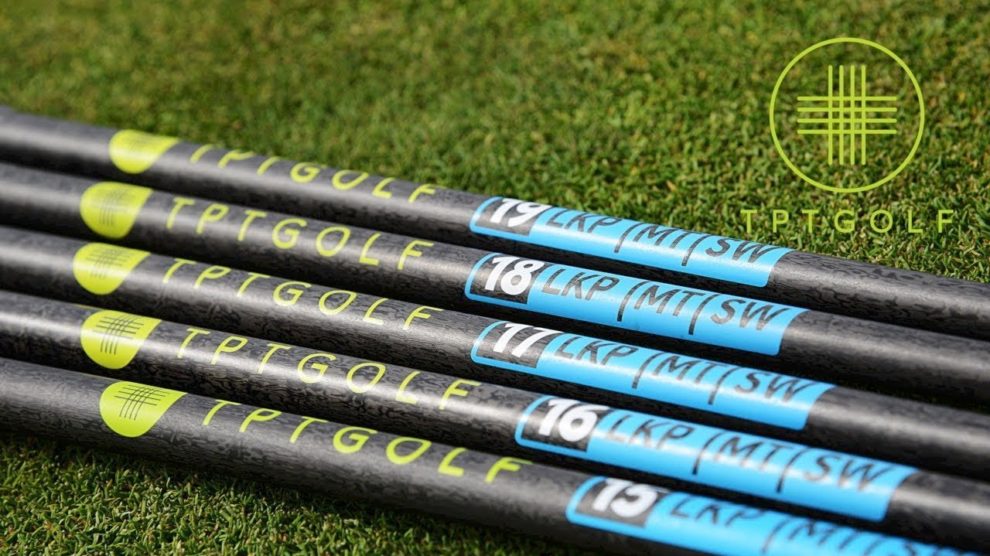There aren't many pieces of golf equipment I've used which have gone straight in the bag.
With the right modern components, a fitter can get me to right about the same launch conditions -- spin and launch angle -- as any driver I've played in the last handful of years. Get the spin around 2400rpm, get the launch around 12 degrees, and let's go. I kind of accept a pretty wide dispersion with a driver. While I'm a much better driver than I was for most of my 20s, my misses can be pretty big. Like different fairway big. Sometimes draws don't draw; sometimes cuts really cut.
Then I saw the dispersion number staring back at me with the final TPT Golf shaft I tried at Club Champion, near my home in Maryland.
After spraying around some shots with my gamer Cobra Golf F8+ driver and a 76-gram HZRDUS Yellow X-stiff shaft, which was a touch too heavy for my comfort, I gave a pair of TPT shafts a try, not seeing particularly better results. However, the final shaft -- the 15 Series, 69-gram shaft with a middle kickpoint and mid-range torque -- was a revelation. The Trackman numbers were jaw-dropping: a dispersion of 1 foot, 8 inches. I knew that wasn't going to be a permanent condition. The idea of never missing a fairway again is absurd on its face. But the idea of it being much harder to miss a fairway sounded incredible. I was in, on a $500 shaft.
While the fitting went great, I don't play golf on a simulator. I needed to see the ball fly from start to finish. So, I've played about a dozen rounds with the TPT Golf shaft now in my Cobra King F8+. While I'm not as flexible and definitely not as thin as I once was, I'm about as long as I've ever been. A little shorter now in my mid-30s but not much. What I've loved, though, is the total dispersion has been well inside the trees of my home club. That's the difference between going for par 5s in two and needing to pull off something goofy to get close. That's the difference between playing short par 4s with an eye on birdie versus regretting pulling driver until the ball goes in the cup. I can still spray drives, for sure. But, more frequently than I had been, I'm where I want to be off the tee. Between using the TaylorMade 2017 M1 440 last year and the Cobra/TPT combo this year, these have been the two best driving seasons of my life.
So what's happening here? I wanted to dig in a little more on the technology behing TPT Golf's shafts, so I spoke with Zak Kozuchowski (yes, of GolfWRX fame), who does some work with TPT.
Zak told me there are really two technologies at work with the TPT Golf shafts.
TPT stands for Thin Ply Technology, which is ultimately a secondary part of the process which makes these shafts so consistent. Thin Ply Technology is the automated manufacturing process behind turning prepreg carbon fiber into the three types of strips which ultimately make up golf shafts. These prepreg strips are as light as 15 grams per square meter, which is four times thinner than a human hair. That process allows for the technological advancement the company dubs the Thin Ply Winding Method.
The Thin Ply Winding Method allows TPT to move beyond hand-rolling, which the company says can cause inconsistencies in angles given golf shafts aren't perfect cylinders, ultimately affecting shaft performance and how the shaft works in your clubs. TPT Golf instead has an automated, highly controlled process which can ensure consistent angles from shaft to shaft, moving weight as desired to specific places on each shaft for particular performance characteristics. The automated process results in a spineless shaft with more layers, more precision and more consistency. With a more precise product in hand, golfers tend to fit into lighter TPT Golf shafts than they're used to playing, largely because they manufacturing process creates the stability needed while eliminating superfluous weight. Swinging a little lighter shaft can mean additional clubhead speed, which can mean more distance. That checks all the boxes for what a component can possibly do for a player.
As Kozuchowski told me, "There's no fudge room" in TPT Golf shafts.
TPT Golf came to be in 2016, but they launched in earnest in 2017 with their product originally priced around $700 per shaft. Their parent company, NTPT, got into golf shafts because it's challenging. However, making a golf shaft is probably about on level with their work in sailing and racing applications of carbon-fiber technology. (Have you seen sailboats lately?!) Making golf shafts is a tough craft, and that's why so many great shaft makers have a well-diversified portfolio of carbon-fiber applications, allowing them to bring in knowledge from other work to their shaft products.
Ultimately, TPT wanted to get closer into the mix of the higher-end offerings from the likes of Mitsubishi and Aldila, so they settled in the $500 range. The company has committed to only selling their driver and fairway wood shafts through approved custom fitters, including Club Champion, which gives TPT Golf a wider distribution through their bespoke shops. There are more than 100 authorized fitters around the world, with the bulk in the United States, but spread into Australia, Japan, Korea and Hong Kong.
The company has no plans to become part of a larger OEM array of available shafts for their driver fittings. While some players have fit driver shafts into their fairway woods, specific fairway wood shafts are in the offing. Don't expect TPT Golf to stop there, either. They have designs on being a full-bag company. While every club in the bag doesn't have to be longer, we can all stand to be a little straighter and a bit more consistent.

